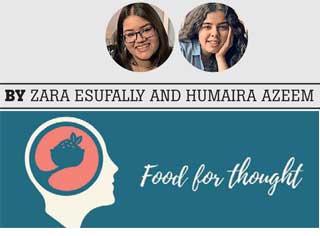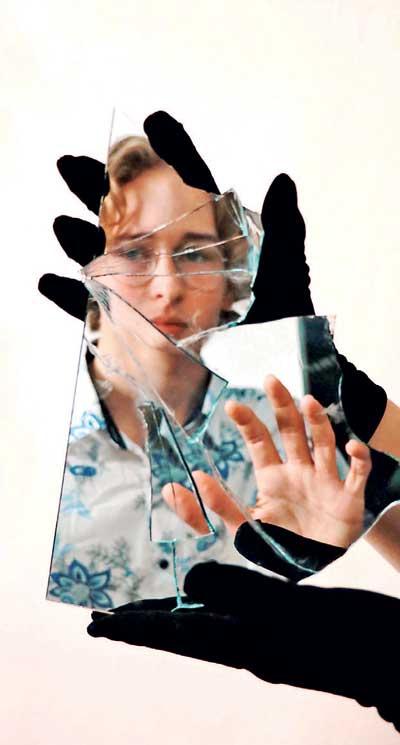Reply To:
Name - Reply Comment
 Living in the era of digital media, it’s safe to say that we, sometimes, have access to too much information. When it comes to nutrition and wellness, information is coming at us from all angles; celebrities, influencers, diet experts, nutritionists, dietitians, wellness bloggers, etc. There is a plethora of people who have no real health or nutrition credentials yet have a lot to say about your health and the “best” way to live your life. A quick YouTube search will get you an almost unlimited array of non-credentialed influencers promoting everything from the keto diet to the OMAD diet (One Meal A Day).
Living in the era of digital media, it’s safe to say that we, sometimes, have access to too much information. When it comes to nutrition and wellness, information is coming at us from all angles; celebrities, influencers, diet experts, nutritionists, dietitians, wellness bloggers, etc. There is a plethora of people who have no real health or nutrition credentials yet have a lot to say about your health and the “best” way to live your life. A quick YouTube search will get you an almost unlimited array of non-credentialed influencers promoting everything from the keto diet to the OMAD diet (One Meal A Day).
I’m sure that many of you are assuming that only the most gullible or naive internet users fall for this type of extreme misinformation online, but you’re wrong. Some of the influencers who post the most egregiously false information have hundreds of thousands or even over one million followers, often on more than one platform.
It is tiring to see well-known celebrities such as the Kardashians promote unhealthy products such as detox teas to their large audience. On the daily, young people open up their devices and scroll through many celebrities and influencers living their best lives with the best-looking body, and when they see their idol promote “health products” like skinny teas, they are then influenced to try it so that they can achieve the same body as their idol.
Most of these influencers are thin, able-bodied, and perfectly reflect society’s one-dimensional ideals when it comes to health.
 These days everyone is so fixated on their body image due to social media presenting unrealistic standards for young people. It creates toxicity within communities when people do not reach the standards and start developing eating disorders trying to “fit in”. Even if we all ate the same meal plan, and did the same workouts every day, we would still be different shapes and sizes. When will we be able to accept that?
These days everyone is so fixated on their body image due to social media presenting unrealistic standards for young people. It creates toxicity within communities when people do not reach the standards and start developing eating disorders trying to “fit in”. Even if we all ate the same meal plan, and did the same workouts every day, we would still be different shapes and sizes. When will we be able to accept that?
Ultimately, nutrition is a science-based field and the best health and nutrition advice comes from experts who understand and can translate the scientific evidence. A lot of time, money and energy can be wasted when following the wrong advice, unfortunately.
So how to spot the difference between a qualified professional vs an “influenza”
Check their social media profiles for any qualifications. BSc or MSc degrees in Nutrition, Food Science, Dietetics or anything related, which will ensure that they are well aware of the nuances the field carries.
Beware of a single certificate course being the individual’s ONLY qualification as a nutritionist or dietitian. E.g. “Certified Nutritionists” - These courses are usually for three to six months, and may be great to take as an adjunct or to enhance the individual’s own nutrition knowledge- but by no means acts a replacement for a nutrition degree.
Check if they are members of professional associations such SLMCC, DIASL (Professional Association of Dietitians andClinical Nutritionists in Sri Lanka) or any other associations abroad.
Lookout for suffixes like RD (Registered Dietitian), ANutr (Associate Nutritionist), RNutr (Registered Nutritionist).
Remember Dietitiansand Clinical Nutritionists are the ONLY professionals in the field of nutrition governed by law in Sri Lanka. The title ‘nutritionist’ is not currently protected by law meaning anyone can use it which is misleading. However, you can always ask them for their qualifications to ensure the information you are consuming is accurate.
While the influencers or celebrities may have positively impacted society, there are many issues that people need to be aware of. In a day and age, where everyone is so immersed in social media and trying to present themselves as perfect online, health and fitness influencers who have large platforms should spread body positivity and healthy ways to achieve personal goals within their community.
To make the health and fitness community even better, they should stop the spread of misinformation when it comes to dieting and exercising, or even call out celebrity figures who are promoting unhealthy products such IV drips, detox teas, collagen supplements and skinny jabs, just for the money.
Diversify your feed and unfollow accounts that spread misinformation which lack reliable evidence. Build a feed full of positive messaging and free of diet culture; follow those who uplift you!